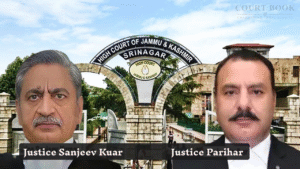In the ongoing case concerning the pension issues of judicial officers, Attorney General R. Venkataramani informed the Supreme Court that the Centre has recently introduced a Unified Pension Scheme aimed at resolving the concerns of all employees, including judicial officers. This announcement is seen as a potential solution to long-standing pension-related challenges faced by judicial officers.
In the ongoing case concerning the pension issues of judicial officers, Attorney General R. Venkataramani informed the Supreme Court that the Centre has recently introduced a Unified Pension Scheme aimed at resolving the concerns of all employees, including judicial officers. This announcement is seen as a potential solution to long-standing pension-related challenges faced by judicial officers.
"We find it appropriate that the matter [be] adjourned for some time so as to experience how the Unified Pension Scheme works and take a call on the issues involved in the present petitions thereafter,"
stated Justice Gavai.
Read Also:- Lottery Distributor Not Liable to Pay Service Tax: Supreme Court Rejects Union's Appeals
The issue of judicial officers' pay and pension has been ongoing for several years. In 2017, the Supreme Court constituted the Second National Judicial Pay Commission (SNJPC) to review the pay scales and conditions of judicial officers in the subordinate judiciary across India.
In 2022, the Supreme Court directed that the enhanced pay scale, as recommended by the SNJPC, be implemented with effect from January 1, 2016. The Court also ordered that arrears for these officers be paid in three instalments: 25% within three months, another 25% in the next three months, and the remaining balance by June 30, 2023.
However, pension issues remained unresolved. In 2023, the Court addressed the matter of pension payments and ordered the revised rates of pension to be implemented by July 1, 2023. It also directed the payment of arrears for additional pension, gratuity, and other retirement benefits, with 25% to be paid by August 31, 2023, another 25% by October 1, 2023, and the remaining amount by December 31, 2023.
However, pension issues remained unresolved. In 2023, the Court addressed the matter of pension payments and ordered the revised rates of pension to be implemented by July 1, 2023. It also directed the payment of arrears for additional pension, gratuity, and other retirement benefits, with 25% to be paid by August 31, 2023, another 25% by October 1, 2023, and the remaining amount by December 31, 2023.
Attorney General Venkataramani was asked to assist in developing a solution for the retired judicial officers' plight.
The issue came into sharper focus in November 2023 when the Court heard a plea from a retired High Court judge, Justice Ajit Singh, who claimed to be receiving a pension of only Rs. 15,000 per month. In the same proceedings, the Court was shocked to learn that some retired High Court judges across the country were receiving even lower pension amounts, ranging from Rs. 6,000-7,000 per month.
Case Title: All India Judges Association v. UoI And Ors. WP(C) No. 643/2015













